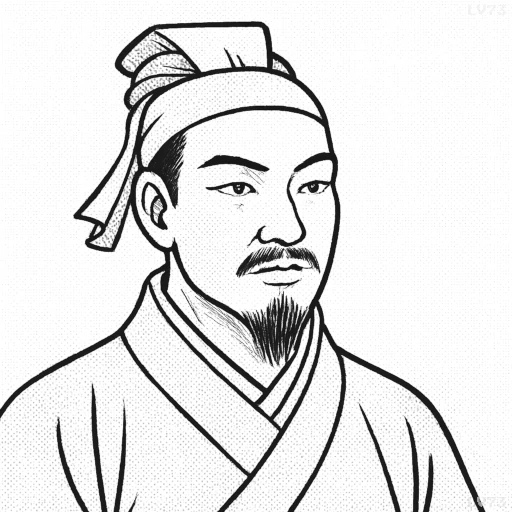“The art of war teaches us to rely not on the likelihood of the enemy’s not coming, but on our own readiness to receive him; not on the chance of his not attacking, but rather on the fact that we have made our position unassailable.”

- 544 BC-496 BC
- Born in China
- Military strategist, military strategist
table of contents
Quote
“The art of war teaches us to rely not on the likelihood of the enemy’s not coming, but on our own readiness to receive him; not on the chance of his not attacking, but rather on the fact that we have made our position unassailable.”
Explanation
Sun Tzu emphasizes the importance of proactive preparation and self-reliance in war. Rather than waiting for the enemy to make a decision or hoping that they won’t attack, the leader’s focus should be on ensuring that their own forces are always prepared and their positions are secure. This means fortifying defenses, being ready for all potential attacks, and anticipating the enemy’s moves. By doing so, the likelihood of successfully withstanding any aggression increases. Sun Tzu suggests that confidence in one’s preparedness is more reliable than assuming that the enemy will refrain from acting. This principle advocates for a mindset of readiness: the ability to respond effectively to any threat, no matter how unexpected or overwhelming it might seem.
In modern warfare and strategic planning, this principle is echoed in the concept of deterrence and contingency planning. Nations today, for example, invest heavily in military preparedness, intelligence, and defensive technologies to ensure that their positions are unassailable, even in the face of uncertainty. For example, the Cold War saw both the United States and the Soviet Union developing vast nuclear arsenals, not necessarily to attack, but to make their positions unassailable and to deter any enemy from launching an attack. In business, companies maintain a competitive advantage by ensuring that they are always ready for market fluctuations, changing regulations, or disruptions—such as how Apple continues to invest in innovation, supply chains, and customer loyalty programs to stay ahead of competitors. Sun Tzu’s advice is to focus on making oneself invulnerable rather than relying on the uncertainty of the enemy’s actions.
Historically, this strategy was adopted by several military leaders. Alexander the Great is a prime example of a commander who, through thorough preparation and meticulous planning, ensured that his forces were always ready for any situation. His ability to anticipate enemy actions and prepare his forces accordingly was key to his success in battles such as the Battle of Gaugamela. Similarly, during World War II, the Allies focused on fortifying their defenses and strategizing for potential German attacks, knowing that their readiness would be the key to surviving any onslaught. The Battle of Stalingrad demonstrated how a strong defense, prepared with determination and resourcefulness, could withstand even the most overwhelming offensive. Sun Tzu’s principle continues to resonate in modern strategy, highlighting that the best defense is not simply the hope that the enemy will not attack, but the confidence that one is always prepared to defend successfully when the attack comes.
Would you like to share your impressions or related stories about this quote in the comments section?

